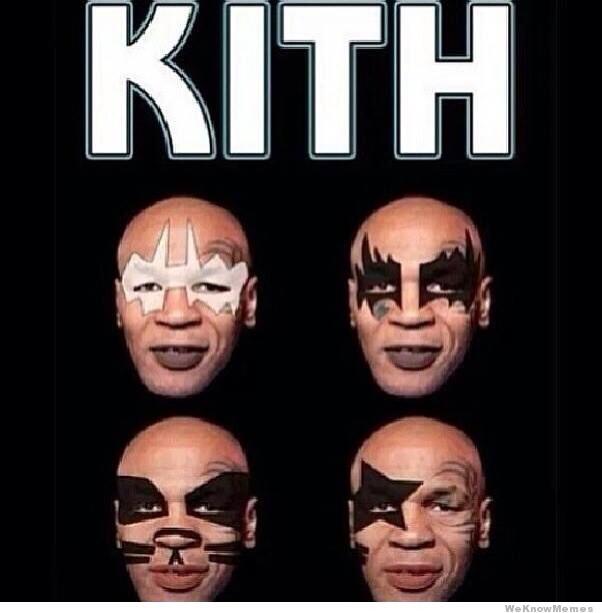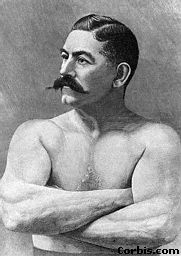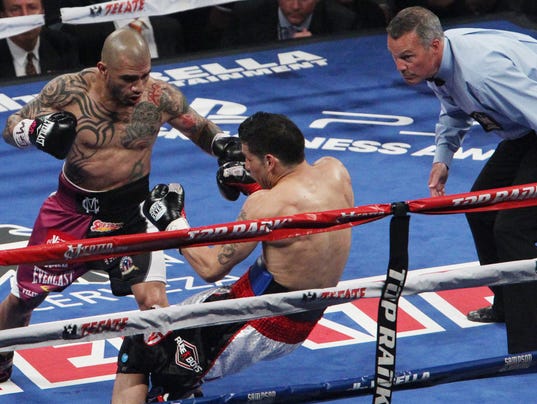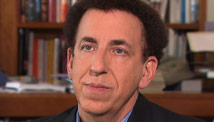 Saad Muhammad,is the former light heavyweight champion of the world, member of the International Boxing Hall of Fame, one of the greatest fighters of all time and a Philadelphia icon
Saad Muhammad,is the former light heavyweight champion of the world, member of the International Boxing Hall of Fame, one of the greatest fighters of all time and a Philadelphia icon
From Champion Boxer to Down and Out: Matthew Saad Muhammad's Story
“BOXING IS NO GOOD for anybody,” says Matthew Saad Muhammad, landing a non sequitur flush on my chin. For the past hour, the 57-year-old former light heavyweight champion of the world has been running down his life story to me in a flurry of free-form, loosely stitched-together anecdotes, each more devoid of context and detail than the last.
It goes like this: I ask the champ a question, and in response I get a series of unrelated thoughts, one dissolving into another without resolution, a litany of rambling biographical excerpts that include punching and getting punched in memorable bouts, memories of having wads of cash in his pockets and a nearly 50-member entourage to help empty those pockets, gauzy descriptions of the dream house he once owned and the many sweet rides he cruised around town in, including a $275,000 Rolls-Royce.
It’s taken months to get this interview with Saad, one of the all-time-great Philadelphia fighters, a warrior of the ring who plied his trade in the ’70s and early ’80s, back when the city had great fighters in gyms and the boxing game still had a modicum of respect. Saad was part of the sport’s golden TV age, when purses of $300,000 or more per bout were de rigueur for top fighters. He earned around four million bucks during his 18-year career, maybe more—no one kept close count.
I’m not looking to talk to Matthew because of all the money he earned, though, or all the fame he achieved, but because of what he lost, which is everything—all of it, every last cent.
WHEN WE DO GET TOGETHER, it’s on a late-spring day at Chickie’s & Pete’s in South Philadelphia, where Saad will return in less than a month to host the Knock Out Homelessness fund-raiser. Saad is no random choice as host. In June 2010, broke and with nowhere to turn, the former champion of the world walked into a homeless shelter on Ridge Avenue in North Philadelphia because he needed a place to lay his head. He stayed four months.
A charitable few pounds over his fighting weight, Saad still looks chillingly powerful across the shoulders and chest. At the moment, he seems more interested in the large plate of Crabfries in front of him than in regaling me with stories.
You blame him? For one, he’s hungry. For another, his is a cheerless story to tell, going back to his earliest years, a story with more lowlights than highlights. He’s also just coming off homelessness, the 10-count still echoing in his ears, and he’s supposed to take time to explain all this to a guy with a pen and a pad who’s offering no money, no relief, no nothing?
"
Matthew Saad Muhammad is entering the ring for his next fight, as an advocate in the battle against homelessness.
But after a couple early awkward silences, I realize it’s not that Matthew doesn’t want to accommodate my questions; it’s just not easy for him. There are challenges with conversational threads and chronology. This doesn’t mean he can’t tell his story, only that it requires a great deal of patience and time for a listener to connect the many dots.
Which is what I’m doing, being patient and trying to connect dots, when Saad hits me with the “Boxing is no good” comment. It’s the starkest of the scores of non sequiturs he’s been throwing my way since we sat down. It’s also the one thing he’s said that feels indisputably real.
“No good, boxing,” he says again, locking his eyes on mine and ignoring the Crabfries in front of him. “Why would anyone let himself get hit in the head?”
FEW FIGHTERS GOT HIT in the head more than Matthew Saad Muhammad.
Frank Gelb, who managed Matthew until 1980, says it; Neil Gelb, Frank’s son, who hung with Matthew as a kid and has stayed close ever since, says it; and so does J Russell Peltz, a longtime Philly boxing promoter.
Even Matthew himself says it: “I still feel some of those punches.”
He turned pro in 1974 and was immediately reaching for the brass ring. He lost just three bouts in his first 18 fights—two to future champs Marvin Camel and Eddie Mustafa Muhammad. In 1977, he knocked out veteran Marvin Johnson in the 12th round to win the North American Boxing Federation light heavyweight crown. In 1979, he fought for the world title, again against Marvin Johnson, and scored a knockout to win. He defended his world title eight times, winning them all, seven by knockout. But when the glory ended, he kept fighting, and he was frequently battered and bruised and overmatched.
“A left-right combination drove Saad Muhammad into the ropes,” reported Sports Illustrated, talking about a 1982 fight against Dwight Braxton. “[T]he unrelenting Braxton unleashed punches in great fearful volleys, hooks and straight right hands.”
In all, Saad fought 58 times for a total of 397 rounds, winning 39 times and losing 16; he won by knockout 29 times and was knocked out himself eight times.
But the numbers, as fight people like to say, don’t tell the real story.
EVERY FIGHTER NEEDS a handle to promote himself.
Matthew Saad Muhammad had a good one.
He had heart.
A really big heart.
What that means, though, once you scrub away the endearing sound of it, is that he could take endless punishment. He could be pummeled round after round, bleed all over the canvas, endure the cruelest of onslaughts, and then somehow, some way, just before the ref was about to jump in and end the slaughter, mount a rally and win.
It’s a funny thing to call heart.
But the fighter with heart showed this ability to endure over and over again in scores of bouts that were frequently described as wars.
Longtime boxing fans often cite two fights:
In 1979, in the world-title match against Marvin Johnson for the light heavyweight championship, Matthew begins to bleed profusely from the nose and from cuts above both eyes. You watch the film, and all you want is for the ref to stop the fight. Somehow, though, Matthew comes to life and scores a miraculous knockout in the eighth round to win the title. When asked by the TV announcer immediately afterward if he wants to watch some of the action replayed along with the television audience, he quickly says no.
A year later, Saad is defending his title against Yaqui Lopez, a tough Mexican fighter. Throughout the first half, Lopez dominates him. In round eight, Lopez pins him in a corner and lands 20 consecutive blows. If you can bear to watch (it’s on YouTube), you can hear the announcer say, “[Yaqui’s] unloaded everything but the Phillies’ bat rack.” Saad comes back and knocks Lopez down four times in the 14th round before the ref finally calls it over.
“You have to understand,” says Peltz, the fight promoter, “a fight wouldn’t start for Matthew until he got hurt. And he was hurt a lot.”
MATTHEW SAAD MUHAMMAD knows hurt. He’s been throttled by life’s cruel turns and by troubles of his own making, a devastating one-two combo.
As I write this—a critical qualifier, since every day is precarious when the bottom falls out—Saad has a place to live, thanks to the patience and persistence of Kevin Roberts-, the editor ofOne Step Away, a newspaper that covers homelessness issues. Roberts befriended Matthew shortly after he landed in the shelter, and has lobbied and pulled every string he could to help him since. Saad now has his own place at Diamond and 17th.
Things are looking up, but then most anything does after homelessness. Recently, though, Matthew’s cell phone was shut off because he didn’t pay the bill.
“Rent, food, electricity—the choice of what to pay and when becomes very tricky when you’re down like this,” says Roberts, who personally had Matthew’s phone turned back on.
You may have noticed (certainly the magazine’s copy editors have by now) that I’ve been referring to the ex-champ by different names—Matthew, Saad, Saad Muhammad—largely because everybody I talk to calls him by a different name, depending on whether they met him before or after his conversion to Islam.
The name I haven’t used is the one he was born with: Maxwell Antonio Loach, the name he had until he was five. That’s when an aunt, who took custody of him and his brother following his mother’s death not long after he was born, decided she could no longer afford both kids. She solved the problem by doing the unthinkable: She told Matthew’s brother to take him by the hand and just lose him in the streets somewhere.
Maxwell Antonio Loach was found sleeping on the steps of the Cathedral Basilica- of Saints Peter and Paul—“It hits me like a punch every time I pass that way,” he says—and taken in by Catholic Social Services. The nuns there named him Matthew, after the apostle, and Franklin, after the Parkway where they found him.
He was later adopted by a Portuguese family in South Philly. He bounced from one reform school to another, finding trouble and bad grades wherever he landed. He remembers having to cross through a neighborhood every day that was ruled by a gang who beat him up and called him “the orphan,” which is what got him to the Jupiter Gym. He had to stop the beatings somehow.
WHEN YOU CAN’T CLEARLY ARTICULATE the events of your life, it’s hard for another person to unearth precisely how and where things went wrong; to find the villains; to put in chronological order events that took you from the top of the world to living alone, trying to keep the phone on.
When you ask Saad himself what went so wrong, he says three things: People robbed him, he wanted people to like him, and he gave all his money away. When you ask him whom he gave his money to, he says just about everybody. And most everybody who knows him says that’s probably true.
Boxing old-timers blame some of Matthew’s financial problems on a group from North Jersey that took over his management shortly after he won the title in 1979. The Muslim-led group got into the champ’s head, they say, wooing him with the story of Muhammad Ali’s conversion to Islam, and then began living high on his winnings. They tell of a party at Saad’s house in Jenkintown where grape juice flowed from a giant fountain and every room had been expensively done over by a different big-name designer just for the occasion.
Thirty years later, there remains uncertainty as to the group’s motives and effectiveness. When you ask Saad about the North Jersey group, he makes a face and says nothing. When you ask about his Muslim conversion, he says he’s “neutral” now when it comes to religion, and that all of that came at a time when Ali was the greatest.
No one who knows Saad now, or who knew Matthew back in the day, believes a hard drug habit has ever been his core problem. But then, no one’s counting alcohol as a hard drug, and weed is never considered a hard drug by anybody. Saad says he would never call himself a drug addict—literally accurate, maybe, but you can hear the wiggle room in his words.
Most distressing is how Saad simply disappears for stretches of time. While I was reporting this story, for example, promised meetings and tours of the old neighborhoods never quite materialized. Roberts, the One Step Away editor and the person closest to Matthew, has lost track of him for days at a time. Though Roberts says it happens less frequently now, there was a time when he wouldn’t find anyone home when he stopped by Matthew’s place. People who’ve known Saad a lot longer than Roberts say he’s been disappearing like this since his boxing days ended, and yet no one seems to have the slightest idea where he goes.
IT’S THE NIGHT of the Knock Out Homelessness benefit at Chickie’s & Pete’s, and Matthew Saad Muhammad is doing his best to play host to the $75-a-person donors.
The turnout is large, full of old fight fans, a tribute to the champ from those who still remember his ring wars. When I see Saad, he gives me a powerful handshake and a hug.
“Welcome, my friend,” he says.
I hear him say it to others, too. He seems to mean it each time. He’s around people again. It’s been a while. He was somebody once.
As the night wears on, though, exhaustion seems to catch up with him. He’s been dealing with people from his deep past and with family members he didn’t expect to see. The glad-handing, the photos snapped with fists up, the small talk with special guests Darren Daulton and Joe Frazier—it’s all beating him down.
Most taxing of all, he’s been forced to play rounds of Wii Boxing, the hyper-realistic- video game in which you trade big punches with your opponent on a big screen. The games leave Saad sweating and fatigued.
Near the end of the evening, I spot the ex-champ wandering alone at the edges of the crowd. He’s smiling, but his head is down, and he’s staying on the move. He’s not looking anyone in the eye, ducking interactions where he can, searching for a quiet place to be, hoping, above all else, to avoid contact.
From Champion Boxer to Down and Out: Matthew Saad Muhammad's Story | Articles: "
Link:
http://www.phillymag.com/articles/how-boxer-matthew-saad-muhammad-went-from-millionaire-to-homeless/?all=1
'via Blog this'









